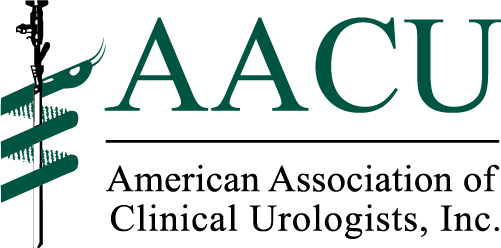How did Medical Society of Virginia (MSV) establish its PAC?
When you need to make an important decision but you’re not familiar with the subject area, what do you do? You consult an expert to get the details you need to help you make an informed decision.
The goal of MSV’s nonpartisan Political Action Committee (MSVPAC) is to do just that: provide legislative decision-makers with the information, data, and details they need to make informed decisions about healthcare-related issues and policies.
Despite the fact that healthcare issues are at the top of the agenda for our legislators here in Virginia, we rarely have legislators with a background in healthcare. The MSVPAC represents the voice of Virginia’s physicians, PAs, and patients to legislators as they address healthcare issues, consider healthcare policy, and shape healthcare laws and regulations.
Virginia’s policymakers need to hear from physicians and PAs to gain a clear understanding of the challenges and opportunities facing the medical profession.
Political Action Committees, or PACs, are established by members to collect funds in an account (IRC 527 Political organization) and disburse money. This process of forming a PAC is simple and can be done by submitting paperwork to the state department of elections.
What are some of the strategies you have used to keep your members engaged?
This is about keeping people involved in a way that works for them. There are always a certain percentage of people who are inclined toward advocacy. These are your most active members who want to be involved in workgroups, lobby days, and organizing PAC related activities. PACs should host regular legislative updates by Zoom that include the broad political picture, the status of particular policy efforts, and notices for upcoming events and advocacy opportunities. It’s important to make sure everyone is on the same page with what can realistically be achieved and how they can be involved as part of the broader organizations’ efforts to achieve those goals.
A second group includes members who are not currently able to dedicate their time and energy but see the value in participating in more targeted ways. I’m thinking of the retired physicians who scaled back their commitments to the PAC but still want to sponsor networking events for students, clinicians, and policymakers. These docs know how important it is to be a part of the process and want to encourage younger generations to get involved.
There are a few programs that PACs can run to help get people involved. For instance, we offer our members the chance to bring our government affairs team to their practice and provide a legislative update. This helps raise awareness of the issues and provides those members chances to demonstrate leadership and help recruit colleagues to join advocacy efforts.
How do you all make strategic decisions about your PAC?
A Board of Directors consisting of physicians, PAs, and practice managers oversees the finances and strategic vision. It is funded only from donations directly to the PAC, and only physicians and PAs, medical practices, and family members of physicians and PAs may donate to the MSVPAC according to our bylaws.
PACs are run by the Board of Directors with staff support from the government affairs team. Strategic decisions can flow both ways. The government affairs team often develops a roadmap outlining policy efforts and how to use PAC funds to help educate legislators on our priorities. However, the Board often suggests new initiatives or adjustments to the roadmap.
The MSVPAC works year-round to develop relationships with state policymakers and their staff. Many PACs only delve out funds to favored legislators. However, our PAC contributes funds directly to legislators who support the policies developed by our members. We also host events throughout the year across Virginia to connect our member advocates to legislators. Continued and direct contact between our members and legislators is a crucial part of educating our elected officials on emerging issues related to the practice of medicine. If we can educate them early and often, we can help shape legislation and regulations coming down the road.
How did you use your PAC to help boost your legislative strategy?
Be thoughtful in how you target your funds. The MSVPAC is nonpartisan and pro-medicine. We meet regularly to discuss what policy issues are moving and which committees are going to review those issues. So, our funds often go towards building relationships and attending events with those committee members.
The MSVPAC strengthens MSV’s advocacy by engaging in the political process throughout the Commonwealth, 24/7, 365. A strong PAC is critical to maintaining a legislative climate that is favorable to physicians, PAs, and most importantly, patients
Can you make any recommendations on leveraging your PAC with outside advocacy aligned groups?
We do not coordinate our candidate contributions with any outside groups such as specialty societies. However, it’s good practice to regularly communicate and know who is prioritizing what issues. Our members set our priorities. Donors or outside groups have no say in determining how PAC funds are allocated although they are welcome to join our efforts.
What Society benefits have you experienced through your PAC over the years?
It’s fun! Serving on a PAC Board of directors requires low time commitment but can yield results that make the practice of medicine better for your patients. Many of our members begin volunteering with the PAC as a steppingstone to further leadership positions within the society. It’s a fantastic way to take ownership of an effort and get to know other leaders who can mentor you in the organization.
What changes has your PAC experienced since COVID 2020?
Fundraising for PACs slowed dramatically during COVID 2020. Clinicians felt the strain of the changes to the practice environment and the stress of the polarized political environment. In the years following, we’ve seen a huge increase in younger providers who want to take political action to ensure they can provide the best care to their patients. Frankly, it’s inspiring. Get them involved now and you will have a cohort for change that lasts a generation.
Has your PAC held gatherings in local venues to recruit support and member participation?
Absolutely! We host networking events near medical schools for students and residents to spend time with established physicians and PAs. We talk about legislative issues, but the real value add is getting younger generations excited and informed about how to get involved in advocacy.
We have also found that members want updates about government affairs efforts so they can voice their thoughts and join when appropriate. We provide legislative updates whenever asked and host several Zoom calls every year.

Ron Lanton III, Esq.
AACU Director of Government Relations
